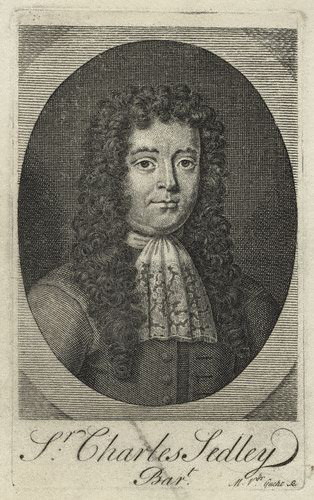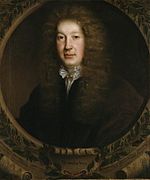The classical unities, Aristotelian unities, or three unities represent a prescriptive theory of dramatic tragedy that was introduced in Italy in the 16th century and was influential for three centuries. The three unities are:
- unity of action: a tragedy should have one principal action.
- unity of time: the action in a tragedy should occur over a period of no more than 24 hours.
- unity of place: a tragedy should exist in a single physical location.

A playwright or dramatist is a person who writes plays.
Genre is any form or type of communication in any mode with socially-agreed-upon conventions developed over time. In popular usage, it normally describes a category of literature, music, or other forms of art or entertainment, whether written or spoken, audio or visual, based on some set of stylistic criteria. Genres can be aesthetic, rhetorical, communicative, or functional. Genres form by conventions that change over time as cultures invent new genres and discontinue the use of old ones. Often, works fit into multiple genres by way of borrowing and recombining these conventions. Stand-alone texts, works, or pieces of communication may have individual styles, but genres are amalgams of these texts based on agreed-upon or socially inferred conventions. Some genres may have rigid, strictly adhered-to guidelines, while others may show great flexibility.

A genre of arts criticism, literary criticism or literary studies is the study, evaluation, and interpretation of literature. Modern literary criticism is often influenced by literary theory, which is the philosophical analysis of literature's goals and methods. Although the two activities are closely related, literary critics are not always, and have not always been, theorists.

Tragedy is a genre of drama based on human suffering and, mainly, the terrible or sorrowful events that befall a main character. Traditionally, the intention of tragedy is to invoke an accompanying catharsis, or a "pain [that] awakens pleasure,” for the audience. While many cultures have developed forms that provoke this paradoxical response, the term tragedy often refers to a specific tradition of drama that has played a unique and important role historically in the self-definition of Western civilization. That tradition has been multiple and discontinuous, yet the term has often been used to invoke a powerful effect of cultural identity and historical continuity—"the Greeks and the Elizabethans, in one cultural form; Hellenes and Christians, in a common activity," as Raymond Williams puts it.

John Dryden was an English poet, literary critic, translator, and playwright who in 1668 was appointed England's first Poet Laureate.

Blank verse is poetry written with regular metrical but unrhymed lines. It has been described as "probably the most common and influential form that English poetry has taken since the 16th century", and Paul Fussell has estimated that "about three quarters of all English poetry is in blank verse".
Mimesis is a term used in literary criticism and philosophy that carries a wide range of meanings, including imitatio, imitation, nonsensuous similarity, receptivity, representation, mimicry, the act of expression, the act of resembling, and the presentation of the self.
Aristotle's Poetics is the earliest surviving work of Greek dramatic theory and the first extant philosophical treatise to focus on literary theory. In this text Aristotle offers an account of ποιητική, which refers to poetry and more literally "the poetic art," deriving from the term for "poet; author; maker," ποιητής. Aristotle divides the art of poetry into verse drama, lyric poetry, and epic. The genres all share the function of mimesis, or imitation of life, but differ in three ways that Aristotle describes:
- Differences in music rhythm, harmony, meter, and melody.
- Difference of goodness in the characters.
- Difference in how the narrative is presented: telling a story or acting it out.
Thomas Rymer was an English poet, critic, antiquary and historian. His lasting contribution was to compile and publish 16 volumes of the first edition of Foedera, a work in 20 volumes conveying agreements between The Crown of England and foreign powers since 1101. He held the office of English Historiographer Royal from 1692 to 1714. He is credited with coining the phrase "poetic justice" in The Tragedies of the Last Age Consider'd (1678).

Sir Charles Sedley, 5th Baronet, was an English noble, dramatist and politician. He was principally remembered for his wit and profligacy.

Verse drama is any drama written significantly in verse to be performed by an actor before an audience. Although verse drama does not need to be primarily in verse to be considered verse drama, significant portions of the play should be in verse to qualify.

In his own time, William Shakespeare (1564–1616) was rated as merely one among many talented playwrights and poets, but since the late 17th century has been considered the supreme playwright and poet of the English language.

Elizabethan literature refers to bodies of work produced during the reign of Queen Elizabeth I (1558–1603), and is one of the most splendid ages of English literature. In addition to drama and the theatre, it saw a flowering of poetry, with new forms like the sonnet, the Spenserian stanza, and dramatic blank verse, as well as prose, including historical chronicles, pamphlets, and the first English novels. Major writers include William Shakespeare, Edmund Spenser, Christopher Marlowe, Richard Hooker, Ben Jonson, Philip Sidney and Thomas Kyd.

Shakespeare's plays are a canon of approximately 39 dramatic works written by English poet, playwright, and actor William Shakespeare. The exact number of plays as well as their classifications as tragedy, history, comedy, or otherwise is a matter of scholarly debate. Shakespeare's plays are widely regarded as being among the greatest in the English language and are continually performed around the world. The plays have been translated into every major living language.

An Apology for Poetry is a work of literary criticism by Elizabethan poet Philip Sidney. It was written in approximately 1580 and first published in 1595, after his death.

Comedy is a genre of dramatic performance having a light or humorous tone that depicts amusing incidents and in which the characters ultimately triumph over adversity. For ancient Greeks and Romans, a comedy was a stage-play with a happy ending. In the Middle Ages, the term expanded to include narrative poems with happy endings and a lighter tone. In this sense Dante used the term in the title of his poem, the Divine Comedy.
The Great Favourite, or the Duke of Lerma is a stage play written by Sir Robert Howard, a historical drama based on the life of Francisco Goméz de Sandoval y Rojas, Duke of Lerma, the favourite of King Philip III of Spain. The play has often been considered Howard's best dramatic work, as well as a step in the development of the heroic drama of the Restoration era.
The Mulberry-Garden is a comedy by Restoration poet and playwright Sir Charles Sedley (1639-1701) and was published in 1668
Selected Essays, 1917–1932 is a collection of prose and literary criticism by T. S. Eliot. Eliot's work fundamentally changed literary thinking and Selected Essays provides both an overview and an in-depth examination of his theory. It was published in 1932 by his employers, Faber & Faber, costing 12/6.










